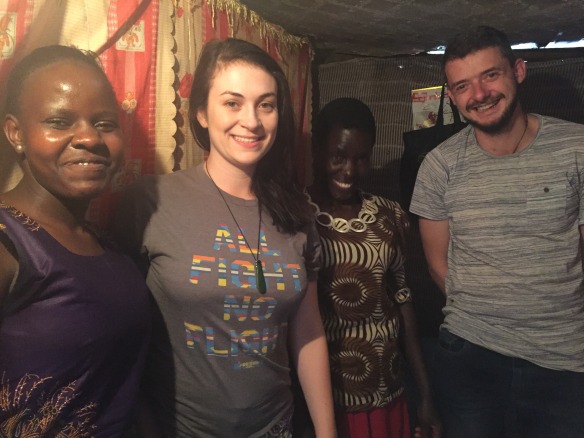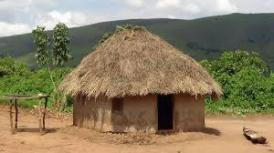We are fast approaching our second anniversary of serving in Kenya so I thought I’d write down a list of things I wish I’d known before we came. Of course, hindsight is an awesome thing, but if you ever consider moving this way for a short or long period of time, it might be good to know.
1. Africa Is Not Cheap To Live In
It’s a myth that’s for sure. We did our budget in 2011 but by the time we got here in 2012 prices had skyrocketed. Most things have stabilised in price since the VAT (tax) of 16% was added. Locals have really struggled since then. We spent a lot of 2013 buying furniture for our place as money came in, with most things bought second hand or built at a roadside carpenters.
Of course, income determines if something is expensive or not. Our budget is short by $1,000 a month, which is a lot when you aren’t allowed to earn money within the country. Our rent is half of what we paid in Sydney for something more than twice the size. We wanted a place where we could have people come and stay, relax and then go on their journey. We’ve had people from NZ, Australia, Germany, Switzerland, Canada, Ethiopia, USA and Norway stay with us. We love it and are grateful for the apartment we have to be able to do it. But our landlord put up the rent by $100 per month after being here for a year, so we’re looking at alternatives for next year.

Equivalent to $9,700AUD for a 2001 car
2. White = Rich
If you’re not Kenyan, you’re white, even if you’re not white. That means you must have money to burn. If you go to the markets on the side of the road, you will spend more time bargaining than what you want. This is why people go to the more expensive supermarkets because they just get tired of being hassled all the time. A friend of ours got his suit for his wedding made for $50. If Pete went, it would be 3 times more the price.
If we want furniture made at the roadside market we send a Kenyan there first for a price so we know what we should be paying. No matter how much you tell your colleagues that you don’t have much money, it doesn’t matter, because you will always have more than them. What people don’t see is the amount of money spent on the work you do – petrol, car costs, school equipment, feeding people or running programs.

I need to get me one of these!
3. You’ll Want To Go Home, Often
Sometimes you wonder if the obstacles are worth it, wasn’t it much less complicated back home? Well, yes it was. Kenya is not impossible to live in it’s just very complicated. As a friend said to us in our early days “Living in Africa will show you what capacity you have on the inside” and I happen to think he’s very right.
It was much easier living in Australia. If we wanted to earn more money, we’d go paint a house. We understood the language. You could walk the streets at night and no problem. There were parks to play in that were free. If you wanted to go to church you had a Saturday night, Sunday morning and a Sunday night to choose from. The ocean was a 4 minute walk from our place.
There’s probably twice in the last couple of years when I’ve thought “Stick this, I don’t need this hassle, I’m heading home”, but for Pete it’s been quite often. He asked me the other day why we were here again. My simple answer is that God knew we were big enough to handle it.
4. Set Work Boundaries
We’ve got plenty of friends who work in the same area as us, but with different organisations. All of us have the same problem – we struggle with work boundaries. I’ve a friend who gets paid for 2 days a week but often works for 5 ‘because they’re in need’. Our phones will often go off at 10pm. We’ve had one weekend off in the last 2 months. I’ve calculated we’ve had 5 days of actual holidays in the last 2 years. When we’ve travelled out of town or overseas, it’s all to do with work. That is really dumb.
This year I decided to work at the office until 1pm, have lunch and then do the rest of my work from home. In essence I can work anywhere in the world but feel obliged to turn up to prove I’m actually working. Between now and when we fly out to Australia in November I’m even taking an hour out in the middle of the day to get some exercise and sunshine.
Next year I’m even thinking of rehashing my working conditions by spending less time in the office and more in the field with people.

Learn to turn it off
5. Sign A Contract
Too many people come with good intentions which get squished out and changed to be not what they came for. I’ve friends in another country who came to work with orphaned children then after 8 months were dumped because the organisation didn’t want to make necessary changes for improvement. Another family came to build a school but wasn’t allowed any input into the long term planning of it. Others were having to give a certain percentage of their support money for the ‘privilege of volunteering’. Make sure the requirements are written down and everyone understands the small print, who pays what and what is expected. For some reason we do this in the business world, but not in development work. Go figure?
6. Do Your Homework Before Coming
We had been to Kenya 3 times before moving here. Most times we came for 2 months and travelled to neighbouring countries as well. However, there is a BIG difference between visiting and living somewhere. How basic everyday things are run is a huge task to learn. It took us 6 weeks to even begin to figure out directions and where things were. Unfortunately, people who have lived somewhere for a long time take everything they’ve learnt for granted. I remember getting pulled across the coals because we didn’t visit a person in hospital enough. Apparently here you drop everything and race off to visit someone, you also take fruit or juice. No one told us about that, and we didn’t even know how to get to the hospital.
An important thing to look into is getting a visa, owning land and traffic laws. Everything here takes a l-o-n-g time and it’s never straight forward. Join expat blogs before you come so you get an idea of how things work. Get Swahili apps on your phone. Use Google maps to see how far things are in distance. Learn some history of the place.
7. Clothes Are Expensive Here
Of course, if you want to, you can buy cheap clothes at the local market. The one closest to us to called the Toi Market. There you can buy second hand clothes, sometimes new ones, which come from overseas. Pete gets a pair of new jeans for $10, guys are lucky, they know their sizes and can get it off the rack. Ladies, not so much.
The clothes at the mall are way overpriced. These are either imported (and thus have large tax) or top of the line. I envy Kenyans, they don’t have to worry about skin tones, they’ve all just got brown skin. They can wear really bright clothes and look awesome!
When we return to Australia we’re buying up big time, especially in the sock and undies department. I think we might even go with empty suitcases.
 8. People Won’t Listen To You
8. People Won’t Listen To You
The number of people who won’t listen to you if frustrating to the max. I mean, what do we know, we actually live here and know how the system works. Visitors have wasted so much money because they JUST WON’T LISTEN. One friend was told by his travel agent that he would have to pay $50 more for an English speaking taxi driver. What a load of rubbish, English is one of the national languages here. Of course, he decided to ignore all of our advice and ended up paying thousands of dollars more than he needed to. We’ve had others who didn’t want our help (thank you very much), decided to do things their way and paid way too much for a vehicle hire and didn’t get to see the areas they really needed to.
And that’s just the visitors.
When you’re trying to bring in different ways of doing things, people will predominantly resort back to their ways. The proof of the success of your teaching is if they put it into practise when you’re not around. If 50% of it is done, that is pretty impressive. We’ll be gone for 8 weeks and it will be interesting to see what the state of things will be on our return.
9. You’ll Spend A Lot More Time On A Computer Than You Ever Thought
There were 2 things I didn’t want to do when we came to Kenya – fundraising and sit in front of a computer a lot. Guess what, I’ve ended up doing both. It’s a necessary evil. Today someone said to me that they haven’t seen a newsletter for a while (it’s been a month). Flip my lid, I’m on Facebook every day, Twitter, Instagram, YouTube and weekly blogs but it still doesn’t cover everyone. There’s marketing material to be designed, videos to create (and they take ages), grants to write and complicated emails to answer. It’s not unusual for me to be on a computer 8 – 12 hours a day.
 10. It Just Might Be One Of The Best Moves You’ve Ever Made
10. It Just Might Be One Of The Best Moves You’ve Ever Made
When Africa gets under your skin, there’s nothing you can do about it. Sure, not everyone should be here long term, in fact, most shouldn’t. Whether you come for a short or long time, all that matters is that you’re doing what you should be doing. If you come with a flexible attitude, don’t always compare it to your home country and be in an attitude of learning, then you should be fine. I called the first year ‘Going back to school’. Every day and even parts of a day were a lesson.
What you will be surprised at is the number of things happening across the country and especially in Nairobi. There’s music festivals, fun runs, street performers, fashion shows, expos, conferences and more. You will meet some amazing people, fruit abounds year round and you’ll never get bored. You’ll notice there are lots and lots of nationalities, wildlife you’ll only read of in books and have experiences your friends will envy.
Africa, Kenya are places that will change you for the better. You’ll get a bigger world view. You’ll miss it when you leave.
 If you plan on coming for at least 2 years can I highly suggest that you don’t do anything for at least a month or two. Get to know the place, the people, directions and get your home set up. We get so passionate about helping people, we can hinder things by rushing in too fast. When we got here some of our team members were leaving and we were expected to take up the slack. I’ve heard of it happening lots in many projects and the newbies either sink or swim. Most of the time we didn’t have a clue that was going on and I remember every few days we were saying to each other “I don’t have a clue what I’m doing, I hope we’re doing okay”.
If you plan on coming for at least 2 years can I highly suggest that you don’t do anything for at least a month or two. Get to know the place, the people, directions and get your home set up. We get so passionate about helping people, we can hinder things by rushing in too fast. When we got here some of our team members were leaving and we were expected to take up the slack. I’ve heard of it happening lots in many projects and the newbies either sink or swim. Most of the time we didn’t have a clue that was going on and I remember every few days we were saying to each other “I don’t have a clue what I’m doing, I hope we’re doing okay”.











































